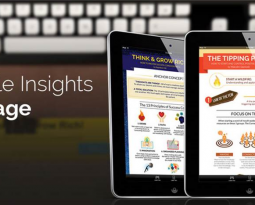It is what it is
“Happiness is like a butterfly: the more you chase it, the more it will elude you. But if you turn your attention to other things, it will come and sit softly on your shoulder.” Thoreau

Recently, I read an interesting research article by Dr Brock Bastian and his team of psychologists from the University of Queensland, Australia. They found that constantly emphasising or looking for positive emotions can actually make people more miserable. Dr Bastian reasons that the disappointment we feel when we fail to achieve our goals tends to push the goal even further away.
Indeed, it is perfectly normal and human to be unhappy at times. By law of contrast, to appreciate joy and happiness, we need to experience grief and sadness. Feeling socially pressured to have to appear happy all the time simply forces us to deny our “negative” feelings, which only aggravates these emotions.
“It is what it is…”
I first heard this phrase from an amazing lady called Nancy Dornan. It took me some time to understand it logically, and even longer to internalize it emotionally. Today, I realize the life-changing impact this simple perspective has had on me. And the power it can have to help someone achieve peace of mind and happiness.
This simple philosophy is really about seeing things as they are, and recognizing that everything else is your own interpretation, judgement and what you make of it.
Is fire good? Yes, if you are trying to cook some food. But no, if you are trapped in a burning building. It all depends on where you are at that point, and what you make of it. That doesn’t change the fact that fire is just what it is – fire. It is neither good nor bad on its own, and what is bad for you today can be the best thing for you tomorrow.
Let’s apply this to some real-life examples. Traffic is traffic. Shouting, screaming, and kicking doesn’t move it. Cursing, swearing and honking at the person in front of you doesn’t change it either. What you can change is to evaluate and try other routes or modes of transportation, or try listening to some good audio material in the car while waiting.
Let’s take another scenario. Your spouse comes home and just wants to spend some time in front of the TV instead of talking to you or helping with housework. You feel upset because you feel he is totally uninterested in your day, or he is a selfish sloth who won’t help you with your burdens and chores. Understand that your spouse watching TV just is. Taking it as a reflection of his disinterest, his attitude and state of mind is simply your interpretation. Does it mean that you can’t do anything about it? Of course not. You can prepare his favourite drink, join him on the couch, or start connecting in a million other ways.
Remember, it is what it is.
Simply becoming aware of the assumptions that you are making and the effect that they have on you, can free up your mind space to focus on the choices and actions you can take.
Applying this to a happier life
There is no need to deliberately chase after happiness. Whether you are feeling happy or sad, calm or angry, your emotions are just a reflection of your thoughts. There is nothing right or wrong with feeling the way you do.
What you can do is to consciously see things as they are, and be aware of why you are feeling that way. From there, recognize you have the choice to either let it go, or do something about it. A small tip – always choose the course of action that will expand your life and options.
To the life you’ve always wanted,
Angela
Do you have stories or ideas on how to spread happiness and help more people to have the lives they want? We welcome your articles and contributions! Contact us or email us at [email protected]!




